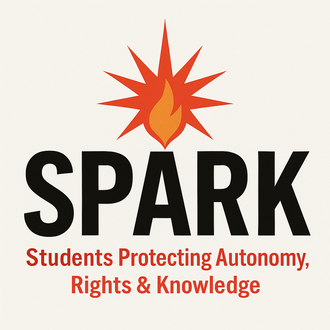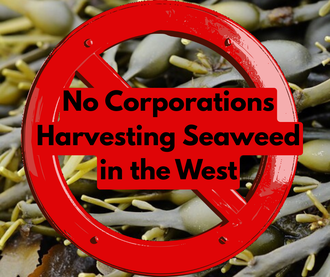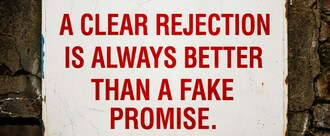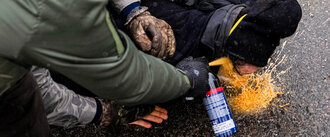- Featured
- Animal Rights
- Anti-racism
- Arts & Culture
- Children
- Climate
- Corporate accountability
- Crime
- Disability rights
- Economic
- Education
- Environment
- Food and Sustainable Production
- Gender Equality
- Governance and Transparency
- Health
- Housing
- LGBT Rights
- Mental health
- Northern Ireland
- Planning
- Privacy and Data Protection
- Rural Inequality
- Social Justice
- Trade
- Transport and Infrastructure
- Workers' Rights
- More
-
Dublin City Council CPO the Finglas ‘Drake Inn’ SiteThe site of the former Drake Inn is a large derelict building in the heart of Finglas Village. It has been derelict for decades. Finglas has a huge need for community buildings that would bring people together and be used by local groups and organisations. Arts and culture events should also be a regular occurrence in Finglas Village, and the area urgently needs more affordable housing. The ‘Drake Inn Site’ could be turned into a community and cultural hub for Finglas, and could also include affordable apartments for people to rent and buy. I have raised this in the Dáil and with Dublin City Council and to date no action has been taken. This is a new opportunity for the people of Finglas to have their voices heard on such an important issue. It's time for long overdue action to be taken on this by the City Council. It's time to CPO the 'Drake Inn' site.115 of 200 SignaturesCreated by Rory Hearne
-
Fix Dunboyne Junior & Senior Primary Schools Now — End the Longest School Build Delay in the CountyFor years, our school community has been waiting for progress on an approved new school building. In the meantime, hundreds of children continue to learn in an ageing main building that no longer meets the needs of a modern primary school. Several classes are housed in portacabins due to overcrowding. Recent severe weather has exposed just how serious this situation has become. • One portacabin classroom suffered a floor collapse. • Two additional classrooms and the reception office are dealing with active leaks. While school staff handle these situations with professionalism and calm, the reality is stark: young children are being educated in infrastructure that is visibly failing. This is no longer an inconvenience. It is an urgent issue affecting the safety, wellbeing, and educational experience of hundreds of local children. At the same time, Dunboyne is expanding rapidly. A major housing development is already underway, and an influx of young families is inevitable. It is deeply concerning that while residential construction accelerates, critical educational infrastructure remains stalled. Parents have shown patience and good faith for many years. But children only experience primary school once. They should not spend those formative years in deteriorating facilities while the wider area grows around them. We are calling on our local representatives and the Department of Education to: • Treat the new Dunboyne school building as a priority project • Provide a clear and binding timeline for commencement and completion • Confirm the current stage of the project and the immediate next steps Our children deserve safe, modern learning environments. Our growing community deserves infrastructure that matches its expansion. We are asking for action, clarity, and momentum — not further delay. Dunboyne Junior & Senior Primary Schools - Parent Association688 of 800 SignaturesCreated by Elaine OConnor
-
FAI Boycott Israel Games!Israel as a genocidal, racist apartheid state should be shunned at every level - economic, political, cultural and in sport10,574 of 15,000 SignaturesCreated by Conor Reddy
-
Petition for an Additional School Warden for St Gabriel’s National School, Cowper StreetAughrim Street has high traffic levels during school hours. There are large groups of pupils crossing at the same times. A new bus route now passes along Aughrim Street, increasing traffic volume and making the crossing busier and more dangerous. The School Warden on Oxmantown Road needs their hours extended to cover the 1:30 p.m. collection, as many younger children finish at that time and require safe crossing support.1 of 100 SignaturesCreated by Claudia Dawn Tavolieri
-
STOP The Law Against <16 Social MediaIt is extremely important because children need social media to contact parents friends and family they also need to keep up with some news This law going through will push us back from a free country20 of 100 SignaturesCreated by M 13

-
Just One cent moreThe farmer's involved are getting a tiny proportion of the profit margins involved even though they supply the vital component to make the beer.4 of 100 SignaturesCreated by Bobby Miller
-
Stop large corporations harvesting huge forests of seaweed from the west coastThere should be a public consultation on this plan opening soon but lets gather signatures to demonstrate the fact that up and down the west coast, thousands of people don't want our seaweed rights given away to corporations.20,211 of 25,000 Signatures
-
Let’s chill the worldTo address climate change and its devastating effects. Climate change causes widespread, rapid, and intensifying impacts, including extreme weather (heatwaves, droughts, floods), rising sea levels, ocean acidification, and severe biodiversity loss. These changes disrupt ecosystems, threaten human health, destroy infrastructure, and endanger food supplies, with significant risks to coastal communities and vulnerable populations.16 of 100 SignaturesCreated by Rachel Farrell
-
No St Patrick's Day Trump VisitNo shamrocks for anyone named in the Epstein files and linked to allegations of sexual abuse of minors23 of 100 SignaturesCreated by Ellie Byrne
-
Justice for Anne: Horses Are Not Vehicles — Remove Them from Urban RoadsAnne’s death occurred as a single event which did not happen in isolation. The situation revealed that Irish roads continue to pose a dangerous threat to horses which results in their injuries. Horses possess both strong physical abilities and delicate emotional nature. The design of these shoes does not provide suitable protection for walking on hard roads while handling urban conditions that include heavy traffic and loud noises and extended physical activity. Horses who fall onto crowded streets experience intense fear while suffering from severe injuries and complete physical exhaustion which endangers the safety of all road users including drivers and bike riders and walking people. The pregnant horse Anne experienced extreme physical exhaustion because she received harsh abuse which caused her to become injured while she stood alone in a busy public street. Despite the efforts of members of the public and animal welfare volunteers, she and her unborn foal died. The national media covered this tragic event which people in the public area observed. The lack of defined rules together with insufficient enforcement and insufficient authority response will keep horses in dangerous circumstances which result in their unavoidable death and suffering. The current situation establishes a dangerous pattern which shows that our community will tolerate animal welfare violations which take place in public spaces. The current initiative protects horses from abuse while it saves their lives and creates safer road conditions for all urban traffic users. Anne’s death must not be in vain. We need to defend all surviving horses from future mistreatment because she endured this horrific experience.25 of 100 SignaturesCreated by Dina Careddu
-
No Irish government ministers to visit Trump on St Patrick'sDayIreland should not be associating with murderous fascist dictators.23 of 100 SignaturesCreated by Brian Dove
-
Designate ICE as a Terrorist GroupI believe there is a serious and legitimate case for designating U.S. Immigration and Customs Enforcement as a terrorist organisation, based not on rhetoric or emotion, but on behaviour and impact. Terrorism is commonly understood as the use of force, intimidation, or fear against civilians in order to achieve political objectives. By that standard, the question should not be who is acting, but what they are doing. State authority should not place an organisation beyond moral or legal scrutiny if its methods align with those definitions. ICE is a civilian enforcement agency, yet it routinely uses armed, militarised tactics against non-violent people. Raids on homes and workplaces, sudden detentions, family separations, and prolonged incarceration without meaningful due process are not accidental excesses — they are central tools of enforcement. These actions are not aimed at stopping imminent violence. They are aimed at deterrence. Fear is not a side effect of ICE policy; fear is the policy. The impact of ICE’s actions extends far beyond the individuals they detain. Entire communities are terrorised. People avoid schools, hospitals, courts, and police out of fear that any interaction with the state could lead to detention or deportation. Parents are taken without warning. Children are separated from caregivers. Communities are left in a constant state of uncertainty, never knowing when the next raid will occur. This is collective intimidation, not targeted law enforcement. Human rights organisations have repeatedly documented deaths in ICE custody, denial of adequate medical care, prolonged detention without trial, and the use of solitary confinement. These are not isolated incidents. They are systemic, recurring, and tolerated. When an institution repeatedly inflicts serious harm on civilians and faces no meaningful accountability, it ceases to function as a legitimate law-enforcement body and begins to resemble a coercive force operating above the law. ICE has also engaged in collective punishment, a practice prohibited under international human rights norms. Family separation was explicitly justified as a deterrent, despite the known psychological harm it causes. Workplace raids punish entire households and communities for alleged civil violations by a few individuals. Punishment designed to make an example of people, rather than to deliver justice, is a defining feature of terror tactics. Crucially, ICE operates with near-total impunity. Officers are rarely held criminally responsible for abuses. Oversight mechanisms are weak. Courts regularly defer to claims of sovereignty or “national security.” This lack of accountability allows coercive violence to continue unchecked, reinforcing fear rather than upholding the rule of law. Non-state groups have been designated as terrorist organisations for engaging in detention without trial, intimidation of civilians, and political coercion through fear. When the same behaviours are carried out by a state agency, they are excused by authority rather than examined on their merits. If terrorism is defined by method rather than membership, this double standard cannot be justified. This is not an argument that borders should not exist, or that immigration law should not be enforced. It is an argument that enforcement through terror, intimidation, and collective punishment is illegitimate — regardless of who carries it out. A state does not gain moral exemption simply by wearing a uniform. Designating ICE as a terrorist organisation would acknowledge that terrorism is defined by actions, not by flags or institutions. It would affirm that no organisation is above scrutiny, and that violence and fear directed at civilian populations in pursuit of political goals must be condemned consistently. If we claim to oppose terrorism, we must be willing to recognise it even when it is carried out by the powerful.1,256 of 2,000 SignaturesCreated by John Shottall









.jpg)
